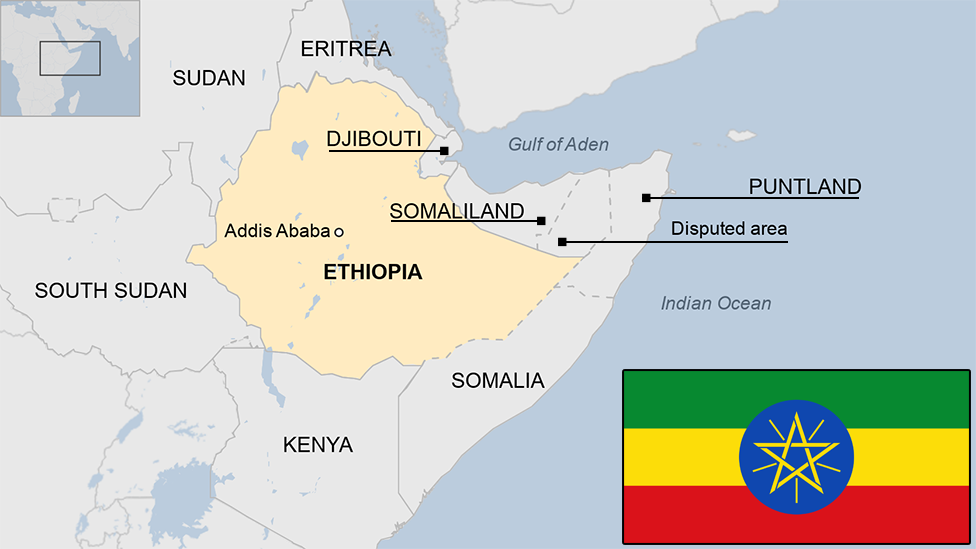Ethiopia says Oromia protests crackdown claims are 'lies'
- Published
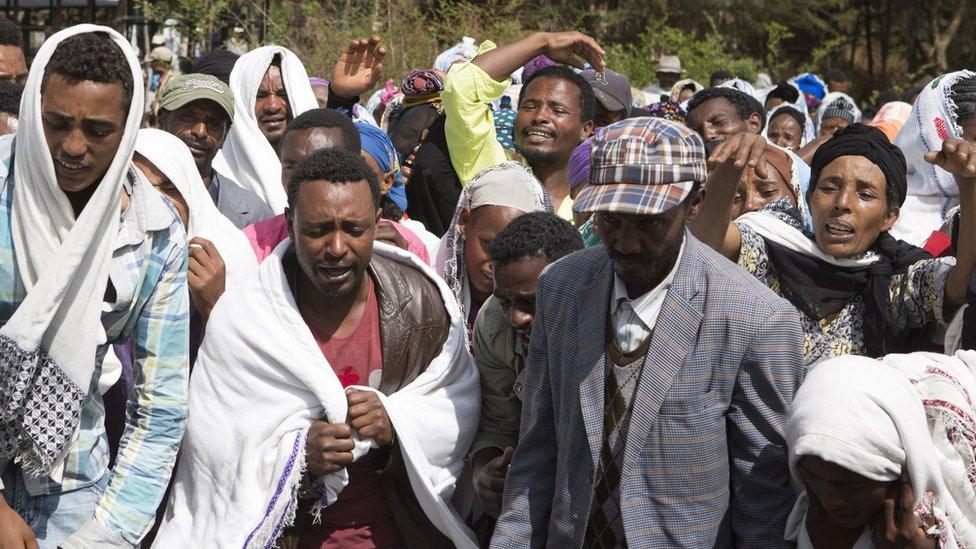
People in the region have long complained of marginalisation
Ethiopia has dismissed allegations it is violently suppressing protests in its restive Oromia region as an "absolute lie".
About 200 people have been killed in the protests since November, Human Rights Watch (HRW) said.
The unrest began over government plans to expand the capital's administrative control into the region.
The government later dropped the plan, but protesters dismissed the decision as "too little too late".
Oromia is Ethiopia's largest region, surrounding the capital, Addis Ababa.
Many people in the region complain of being politically and economically marginalised in a country where the Ethiopian People's Revolutionary Democratic Front (EPRDF) coalition has ruled since 1991.
'Thousands detained'
New York-based HRW said, in a report, external, that anti-government protests had decreased in the last few weeks, but the "crackdown continues".
"Almost daily accounts of killings and arbitrary arrests have been reported to Human Rights Watch since 2016 began," it added.
HRW said thousands of people had been detained without charge since November.
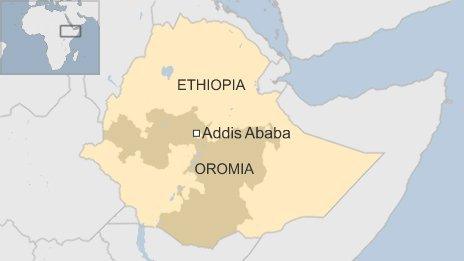
But Ethiopia's Communications Minister, Getachew Reda, told the BBC that it was a "stroke of magic" for HRW to release a report "from half way across the world".
He acknowledged that there had been trouble, but said attacks on public buildings were carried out by armed gangs "who are trying to stir up emotions in the public".
Mr Getachew said that HRW has been "churning out report after report" on Ethiopia without a presence in the country, and its allegations against the security forces were an "absolute lie".
At the last census in 2007, the Oromo made up Ethiopia's biggest ethnic group, at about 25 million people out of a population at the time of nearly 74 million.
- Published18 December 2015
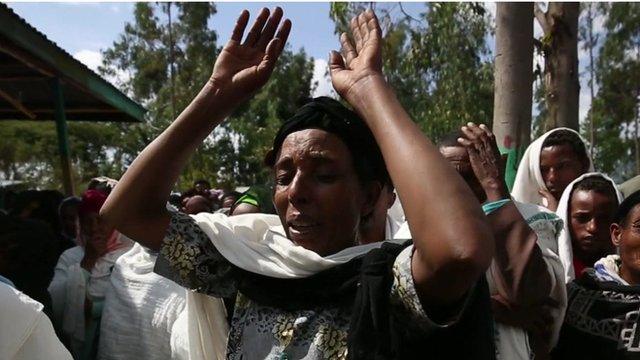
- Published28 July 2014
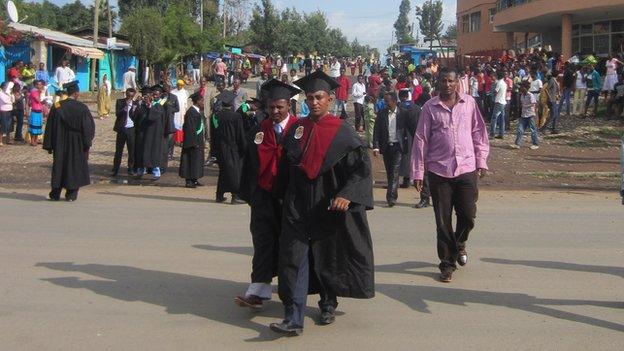
- Published2 January 2024
